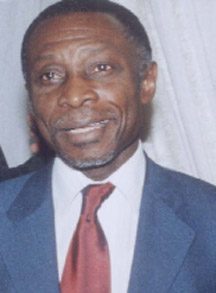A Partnership for National Unity’s (APNU) Carl Greenidge says government is trying to shift attention from the real issues that threaten to bring the country to its knees by engaging in personal attacks.
Speaking yesterday at a press conference held at the Office of the Leader of the Opposition in Hadfield Street, Greenidge also accused the government of withdrawing its given commitment to a process whereby the opposition would have had an input into the national budget, which will be presented next Friday.
He noted that President Donald Ramotar and Head of the Presidential Secretariat Dr Roger Luncheon had earlier given such a commitment. “We had an agreement at the highest level that in preparing the budget, the opposition parties would have an opportunity to discuss the assumptions, the measures and the goals of the budget of 2012. Despite three letters from me and a commitment by Dr Roger Luncheon that he would have arranged a meeting the week of February 8, 2012, no such meeting has taken place and when I did speak to Dr Ashni Singh on this matter last week, the indication was that he did not have then and would not have time before the end of the month,” he said. “I don’t think that his priority on this matter was the same as we had been led to understand by the President,” he said.

“What you have seen in the last few weeks relating to the discussions of how the budget might be prepared and in relation to the two financial papers touches on a range of factors, including issues of abuse of power, breaches of the law by the government itself and misrepresentation of the fact,” he said.
Meanwhile, at a press conference held at the Office of the President yesterday, President Ramotar said that if the opposition was not satisfied with the efforts the government made to have consultation prior to the budget then that is their problem.
Debate
Meanwhile, noting that there had been personal attacks against his tenure as finance minister, Greenidge said, “I have no difficulty engaging in a debate concerning the economic performance and economic management during my tenure as Minister of Finance from 1983 to 1992. I believe that such a debate, if carried out in a meaningful way, can help us to advance our policy making and refine our policies for the future.”
He said it is a fabrication that is often peddled that during his tenure as minister of finance there were no audited accounts.
“This is a complete fabrication. During my tenure, we were able to reduce the backlog of national accounts that were outstanding. When I came to office there was a considerable backlog, I don’t think one could deny that. My contribution was to help to reduce that backlog. When I demitted office, we had left in place an arrangement which involved both the Accountant General and the Auditor General and their teams and the intention was that for the remaining years they would work to bring those accounts up to date,” he said.
Greenidge said two reasons were primarily responsible for the running up of the national debt. He said some time in the mid-seventies, the government of the day purchased an IBM 3300 computer, what he referred as the frontier of technology of the day. However, he said that with the computer there were a lot of difficulties encountered in transferring information and then getting the machine to manipulate it.
“On top of that the arrangement for the sale of gold which was done through the embassies and the recording of the transactions themselves and finding the appropriate exchange rate created a lot of difficulties and the government perhaps failed to ensure that the Accountant General had officials in the embassies frequently enough. That is the cause. It had nothing to do with Greenidge. I came and found it like that,” he said.
“If you had a look at the records of the National Assembly you will see that the arrears were done in batches – three years and four years at a time. That is an indication that a special effort was being made to treat with a problem that was recognised as important,” he said.
“I do not believe that the challenges that are before us could be solved by processes involving us engaging in personal abuse – cussing out as it is commonly referred to. We need to focus upon the current policies and the issues of non-accountability, issues of corruption and petulance on the part of the Government in responding to the debate,” he said.
He said there is a feeling on the part of the government that no one else has a right to anything once they are elected. “Whether is it a right to misappropriate state resources, a right to say what they like without being challenged… they seem to think that these are rights that an election victory imbues them with,” he said.
“The [members of the government benches] may be nice and wonderful people, but this is not the issue. The issue has to do with the quality of the policies and therefore for as long as I have responsibility for financial matters, you will hear criticisms whenever I see inadequacies. And those inadequacies are evident in the issues before us,” he said.









